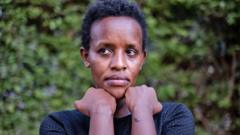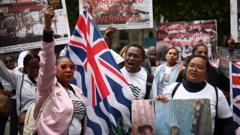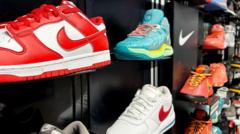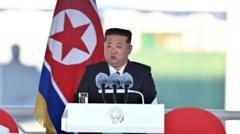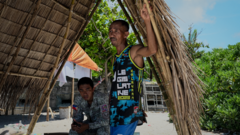Tadashi Yanai, CEO of Uniqlo's parent company, reassured consumers that the company does not use cotton sourced from Xinjiang, addressing concerns about human rights violations while navigating the complex market dynamics in both China and the US.
Uniqlo’s CEO Confirms No Xinjiang Cotton Used in Products
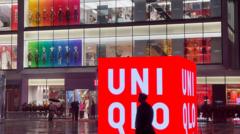
Uniqlo’s CEO Confirms No Xinjiang Cotton Used in Products
Fast Retailing's head shifts stance amid global scrutiny over forced labor practices.
The chief executive of Fast Retailing, the parent company of fashion retailer Uniqlo, has publicly confirmed that the brand does not incorporate Xinjiang cotton in its products. In an interview with the BBC in Tokyo, Tadashi Yanai stated that Uniqlo does not use cotton from the controversial region, known for its associations with forced labor practices involving the Uyghur minority. This marks a pivotal moment as it is the first time Yanai has taken a clear stance on the issue.
Unabashedly, Yanai acknowledged the implications of mentioning sourcing specifics, as they often lead to political discussions. "Actually, it gets too political if I say anymore so let's stop here," he remarked, fully aware of the delicate balance required in the current geopolitical climate. This transparency comes amidst intensified scrutiny of fashion brands regarding ethical sourcing and labor practices, particularly following the implementation of strict US import regulations on goods from Xinjiang.
Historically, brands like H&M and Nike faced boycotts in China after voicing concerns about Xinjiang cotton, severely impacting their market presence. By remaining neutral previously, Uniqlo navigated a potentially tough situation and retained its popularity in China, where it operates around 1,000 stores compared to its home nation, Japan.
Despite expansion efforts in Europe and the US, Yanai reiterates his confidence in the Chinese market, indicating plans to increase store numbers to 3,000 given China's population of 1.4 billion. Currently, China stands as Uniqlo's largest manufacturing hub, with production also extending to countries like Vietnam and Bangladesh.
While Yanai acknowledges the growing competition from fast-fashion brands, he expresses skepticism about their sustainability, labeling their practices wasteful for the planet. “I don’t think there’s a future for fast fashion," he insisted, advocating for Uniqlo's focus on durable, essential clothing rather than fleeting trends.
With ambitions to surpass Inditex, owner of Zara, as the leading global fashion retailer before retirement, Yanai is aware that maintaining ethical practices will be crucial in the increasingly conscious marketplace, particularly with potential changes in US-China policies under a future Trump administration. Uniqlo’s trajectory remains essential not just for its own brand identity, but in setting a precedent for transparency in the global fashion industry.


